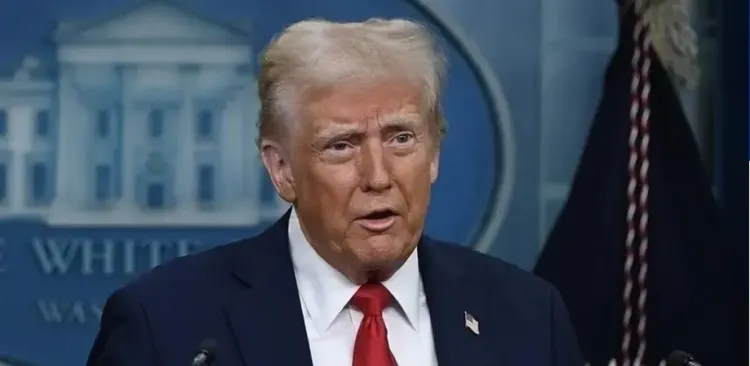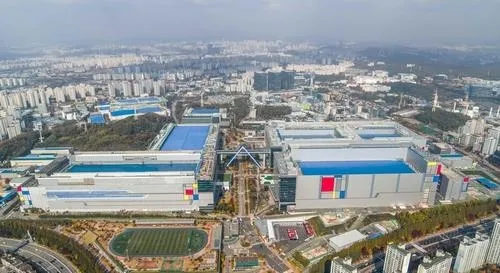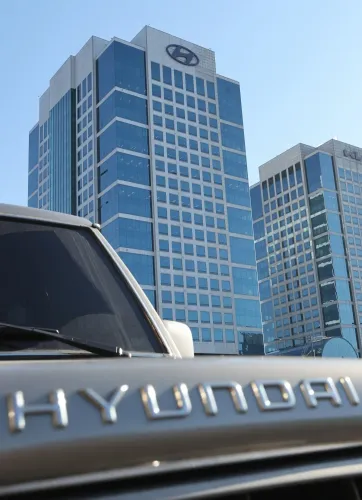US Tariffs on Imported Vehicles to Impact South Korean Automakers

Synopsis
Key Takeaways
- 25% tariffs on imported vehicles starting next month.
- Heavy impact on South Korean automakers reliant on U.S. exports.
- Estimated 18.59% decrease in car exports to the U.S.
- Hyundai Motor Group plans $21 billion investment to offset tariff effects.
- Industry calls for swift government action for exemptions.
Seoul, March 27 (NationPress) US President Donald Trump's recent declaration to impose 25 percent tariffs on all imported vehicles starting next month is anticipated to significantly harm South Korean automakers, which heavily rely on exports to the United States, analysts stated on Thursday.
Trump enacted a proclamation to enforce these new tariffs on foreign-manufactured cars, light trucks, and essential auto components, effective from next Wednesday.
Last year, South Korea exported US$34.7 billion worth of vehicles to the U.S., making up nearly half of the nation’s total vehicle exports, which amounted to $70.8 billion, according to reports from Yonhap news agency.
As per the Korea-U.S. Free Trade Agreement (KORUS), Korean-made vehicles have previously been exempt from tariffs in the U.S.
Experts pointed out that the implementation of these 25 percent tariffs will raise the cost of Korean vehicles in the U.S., ultimately affecting South Korea’s economy.
A report from the IBK Economic Research Institute forecasted that South Korea’s car exports to the U.S. could decline by 18.59 percent following the introduction of these tariffs.
Citi Research projected a 0.203 percent dip in South Korea’s gross domestic product (GDP) as a result of Washington’s tariffs on cars, auto parts, medicines, and semiconductors.
Hyundai Motor Group, South Korea's largest automotive manufacturer, which recently announced a $21 billion investment plan in the U.S. over the next three years, is also anticipated to face short-term challenges.
Hyundai Motor Co. and Kia Corp. sold a total of 1.7 million vehicles in the U.S. last year, including 1 million vehicles made in Korea.
The latest investment strategy aims to bolster U.S. production to mitigate the repercussions of the tariffs. The company operates three manufacturing facilities in the U.S., including the newly inaugurated Hyundai Motor Group Metaplant America (HMGMA) in Georgia, which officially opened on Wednesday (local time).
However, insiders indicate that the expansion efforts require time to materialize.
Although HMGMA has a production capacity of 300,000 vehicles, it only shipped 4,000 units last month, highlighting the time needed to scale up operations.
The new tariffs are also raising concerns about a possible exit of GM Korea Co., the South Korean division of General Motors Co., which closed one of its factories in Korea in 2019 due to profitability issues.
GM Korea exported 410,000 vehicles to the U.S. last year, representing 85 percent of its total international sales.
Industry insiders and specialists underscored the urgent need for the South Korean government to swiftly pursue exemptions or waivers by emphasizing the investments and contributions of Korean firms in the U.S.
"This is a concern we have been preparing for," said an automaker representative. "It is not an issue that individual companies can tackle alone. We are closely monitoring the situation and awaiting government action."
During the HMGMA inauguration, Hyundai Motor Group Executive Chair Euisun Chung also urged for collaborative efforts between the South Korean government and automakers to negotiate favorable terms in the impending tariff discussions with Washington.
"I realize our investment initiative is unlikely to influence Washington's tariff regulations," he remarked. "We are merely a company. This is a matter between nations."










